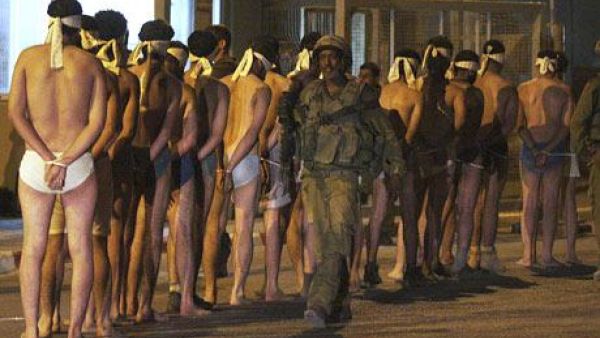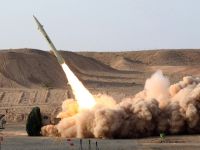An award-winning Palestinian lawyer has warned that the tit-for-tat cycle of arrests between Hamas and Fatah factions is leaving human rights in the Occupied Territories “in the worst situation since the Nakba.”
Raji Sourani, the Palestinian Authority’s first political prisoner and former Amnesty International Prisoner of Conscience during his time incarcerated by the Israelis, said the rival political factions were undermining the credibility of the Palestinian struggle against Israel through a pattern of arbitrary arrests and torture, outside the framework of the law.
“We have a vicious circle now where Fatah, under the auspices of the Palestinian Authority, in the West Bank will detain a Hamas official; then, Hamas counters the PA to arrest a Fatah official in Gaza,” said Sourani, who was awarded the Rights Livelihood Award for his work on human rights last week.
“Meanwhile, Israel is just sitting on the side and watching.”
Long-term political adversaries Hamas and Fatah control separate territorial enclaves – the Gaza Strip and the West Bank respectively. After losing legislative elections in Gaza in 2006, Fatah was forced out, leaving its power base confined to the West Bank. Despite closed-door talks between the two sides in recent months, public animosity, which sometimes spills over into bloody scuffles, continues to run high.
“These arrests and in some cases torture are carried out with complete disregard for the rule of law and proper democratic practice, putting us in the worst situation since the Nakba in terms of rights,” Sourani said, referring to the establishment of Israel in 1948, which forced hundreds of thousands of Palestinians into exile.
However, while Sourani places the blame for the current human rights abuses squarely with Palestinian political organizations, he is keen to emphasize that such acts take place within a wider context of Israeli illegality.
“The occupation is the root of the problem here. Clearly, the Palestinian Authority is limited in its judicial power, but they are failing to protect democracy within their jurisdiction.”
Sourani, a Gaza resident, has spent 37 years campaigning against rights abuses by Israel, Hamas and the Palestinian Liberation Organization. It is a career choice that has left him at the mercy of the darker side of all three security apparatuses.
His years defending Palestinians incarcerated in Israeli jails resulted in his own spells of imprisonment in the 1970s and 1980s, culminating in the unprecedented decision by Israel in 1986 to ban him from any advocacy work for a year. An Israeli military decree also prevented him from leaving the confines of the Gaza Strip between 1977 and 1990.
However, the bitterest moment came in 1995 when he was detained by the PA, as he felt stabbed in the back by the people he sought to represent.
“Being held by the Palestinians for only a few days was worse than being held by the Israelis for years ... All I could think was these are my people, I am fighting for us, so how did this happen?” Sourani said.
His arrest was sparked by his campaign against State Security Courts, which were designed by the PLO to try Islamist figures and those suspected of collaborating with Israel. The courts had no right of appeal and only its leader Yasser Arafat himself had the right to overturn sentences.
The State Security Courts were finally disbanded in 2003, after years of efforts by his organization, the Palestinian Center for Human Rights.
Sourani’s campaigns have not gone ignored. Last week he was presented with the Right Livelihood Award, known as the alternative Nobel Prize, which recognized his “unwavering dedication to the rule of law and human rights under exceptionally difficult circumstances.”
In recent years, the PCHR has diversified. The organization has been training Syrian lawyers, judges and human rights activists on how to properly document war crimes and crime against humanity. The work started just months before the Syrian uprising began in 2011.
Although Sourani would not be drawn on the specifics of how lawyers are able to document crimes objectively in the context of a highly politicized conflict, he was adamant that their role is at the heart of carving out a solution to the crisis.
“It is the rule of the jungle out there [in Syria] now and civilians are suffering the most. As lawyers we have the obligation to document. Syrians must keep documenting. Without it, justice is basically impossible.”








